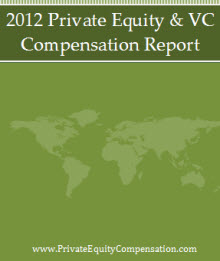Venture capital investments in US companies totaled $6.36 billion in the first quarter of 2013, the lowest in a quarter since the third quarter of 2010 according to data from Dow Jones VentureSource. The number of deals closed during the quarter at 752 was also the lowest since 2010 third quarter. When compared with the corresponding period last year, the dollar amount invested in the first quarter is 12 percent lower and the number of deals 11 percent fewer. Comparison with the prior quarter shows a decline of 11 percent in dollars invested and a 6 percent drop in the number of deals in the first quarter of 2013.
Healthcare Takes 30 Percent Of VC Investments In Q1
Healthcare companies continued to attract significant investments from venture capital firms and garnered 30 percent of VC investments in Q1. However, total dollars invested in healthcare companies registered a drop of 16 percent compared to the prior quarter, a bigger drop compared to the 11 percent decline in venture investments across all segments. Venture capital firms also scaled down their investments in segments such as Information Technology (IT), Energy and Utilities but made higher allocations to Business and Financial Services, Consumer Goods, and Consumer Services during the quarter.
Online bulletin board Pinterest which allows members to pin images, videos and other objects to their pinboard took the largest venture capital investment of $200 million during the quarter. Other big venture capital investments during the quarter include investments of $150 million in IT management company SevOne, and $150 million in healthcare firm Precision for Medicine. Another notable deal during the quarter is that of daily deal site LivingSocial, which received $100 million in venture capital.
New Enterprise Associates was the most active venture capital firm during the quarter with 22 deals followed by 500 Startups with 19 deals and Andreessen Horowitz with 18.
Companies based in the San Francisco Bay area received the most from venture capital firms attracting $2.32 billion in 229 deals. Boston based companies got $650 million across 71 deals, while New York took the third spot with venture capital investments of $510 million from 82 deals. Washington State, which usually ranks among the top five places for venture capital funding fell to number 10 behind Georgia, Utah and Delaware. Chicago area companies raised just $20 million of venture capital in eight deals during the quarter, down from $93 million across 15 deals a year ago. That put the metro Chicago area last out of 11 sub regions tracked by Dow Jones VentureSource.
Venture Capital Firms Raised $4.2 Billion In Q1
The Dow Jones VentureSource report also shows that a total of 43 venture capital funds raised $4.2 billion in new capital from limited partners during the first quarter of 2013. The figures show an improvement when compared with the previous quarter in which 37 venture capital funds raised $2.57 billion, but the amount raised is well below the $6.33 billion VC firms raised in the first quarter of 2012.
Battery Ventures raised the most amount of capital by a venture capital firm during the quarter. It raised $650 million and accounted for 15 percent of the total amount raised in the quarter. Other large fundraising during the quarter include $425 million by Spark Capital and $400 million by Redpoint.
M&A, IPO Activities Weak
The M&A and IPO numbers suggest that the underlying weakness in the economy is limiting the ability of venture capital firms to cash out of existing investments with profit. During the quarter, funds raised through initial public offer by venture backed companies totaled $643 million, a decrease of 55 percent year over year. Mergers and acquisitions activity was also weak during the quarter with fewest exits for a quarter since the first quarter of 2009. First quarter acquisitions generated $4.88 billion, down 47 percent from $9.24 billion in the first three months of 2012.
John Taylor, head of research for the National Venture Capital Association says a lot of venture capital firms are stuck with existing investments. Taylor attributes the first quarter weakness in fundraising and deal activity to political and budget concerns in Washington and expects stronger volume in the second and third quarters.


